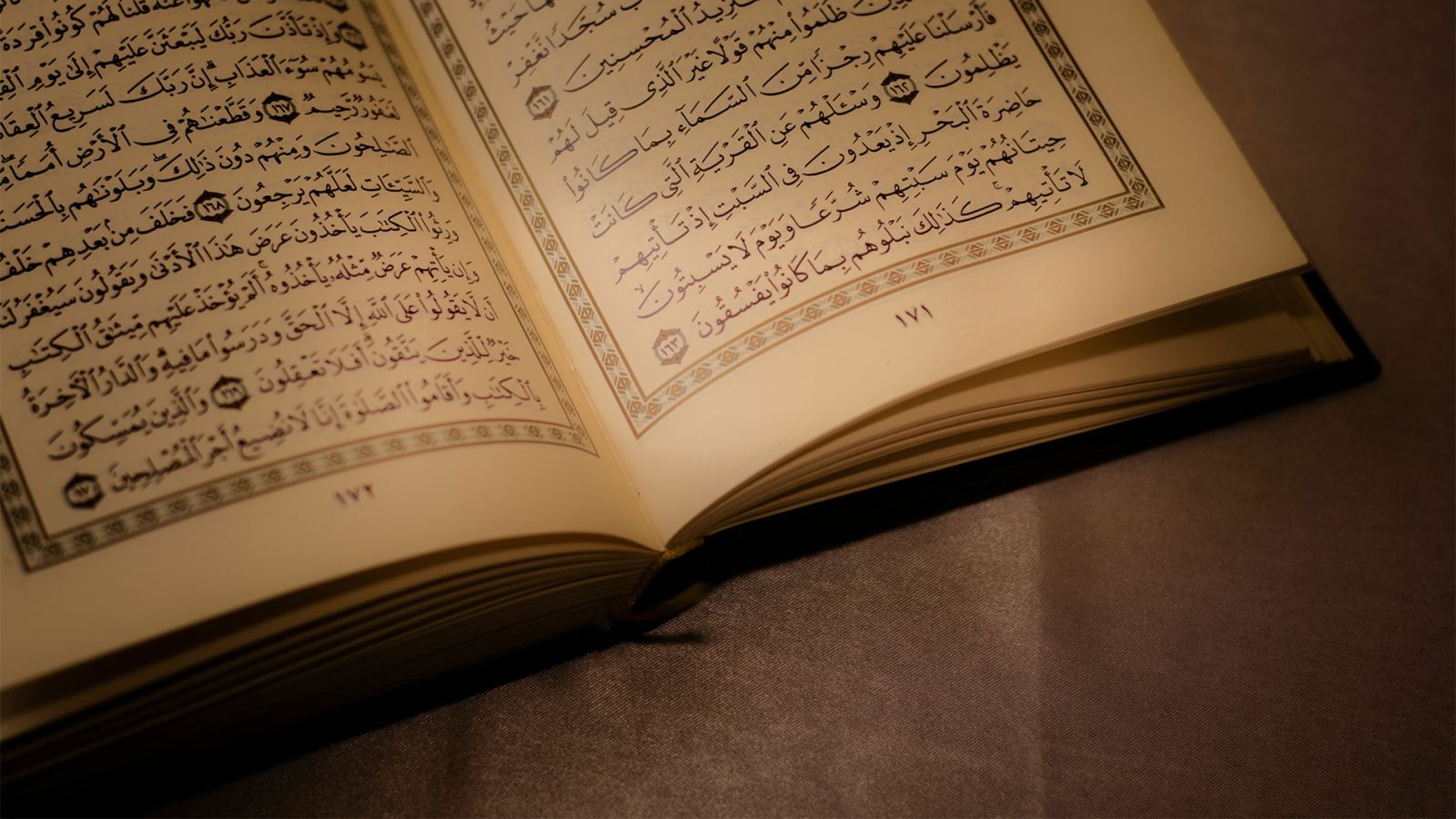Bulūgh al-Maram: Exhortation to Good Character


The following ḥadīth are selected from Bulūgh al-Maram’s Bulūgh al-Maram (Attainment of the Objective according to Evidence of the Ordinances) [Page 480+ eng. trans.], and touch on the importance of good Islamic character:
1314. Narrated by Ibn Masʿūd (رضي الله عنه) Allāh’s Messenger (صلى الله عليه وسلم) said: “Adhere [you people] to truthfulness. Indeed, truthfulness leads to righteousness and righteousness leads to Paradise, and if a man continues to speak the truth and makes truth his object, he will be recorded as truthful before Allāh. Avoid [you people] falsehood, indeed falsehood leads to wickedness and wickedness leads to the hellfire, and if a man continues to speak falsehood and makes falsehood his object, he will be recorded as a liar before Allāh [agreed upon].
1315. Narrated Abū Hurayrah (رضي الله عنه) Allāh’s Messenger (صلى الله عليه وسلم) said: “Avoid [you people] suspicion, for indeed suspicion is the worst form of false speech. [Agreed upon]
1316. Narrated Abū Saʿīd al-Khudrī (رضي الله عنه) Allāh’s Messenger (صلى الله عليه وسلم) said: “Avoid sitting by the roadside”. They [the Companions] asked “O Allāh’s Messenger, we cannot do without those meeting places in which we converse,” so he said, “Well if you insist (on that), give the road its dues.” “They asked, ‘what are the roads dues?” He replied, “Lowering the eyes, abstaining from anything offensive, returning salutations, enjoining good, forbidding the evil.” [Agreed upon]
1317. Narrated Mu’aawiyyah (رضي الله عنه) Allāh’s Messenger (صلى الله عليه وسلم) said: “Whoever Allāh wishes good for, he gives him understanding of the Religion”. [Agreed upon]
1318. Narrated Abū al-Dardā (رضي الله عنه) Allāh’s Messenger (صلى الله عليه وسلم) said: “There isn’t anything, which will be put on the scales (on the day of resurrection), heavier than good character.” [Abū Dāwūd and al-Tirmidhī reported it, and later graded it ṣaḥīḥ]
1319. Narrated Ibn ʿUmar (رضي الله عنه) Allāh’s Messenger (صلى الله عليه وسلم) said: “Modesty is part of Faith”. [Agreed upon]
1320. Narrated Abū Masʿūd (رضي الله عنه) Allāh’s Messenger (صلى الله عليه وسلم) said: “One of the things people have learned from the earlier prophecies is, ‘If you do not feel any shame, do whatever you like.’ [al-Bukhārī reported it]
1322. Narrated Iyāḍ Ibn Himar (رضي الله عنه) Allāh’s Messenger (صلى الله عليه وسلم) said: “Allāh, The Most High, has revealed to me that you should be humble, so that no one transgresses against another, and no one boasts to another.” [Muslim reported it]
Note: we see hear that both transgression and pride are blameworthy characteristics, it is reported in a ḥadīth that the Prophet (صلى الله عليه وسلم) stated that transgression is one of the worst of the criminal acts that are punishable in this world as well as in the hereafter. Indeed, lack of humbleness fosters and breeds both transgression and pride.
1323. Narrated by Abū al-Dardā (رضي الله عنه), the Prophet (صلى الله عليه وسلم) said: “Whoever defends his brother’s honour in his absence, Allāh will protect his face from the hellfire on the day of resurrection.” [al-Tirmidhī reported it, and graded it ḥasan. Aḥmad has something similar from the ḥadīth of Asmāʾ, daughter of Yazīd.]
Note: If someone backbites a third person before somebody, the listener must stop him on the spot; and if possible one should mention his virtuous deeds and qualities instead.
1326. Narrated Tamīm ad-Daree (رضي الله عنه) Allāh’s Messenger (صلى الله عليه وسلم) said three times: “The religion is Naṣīḥah (sincerity).” We asked, ‘who is it (directed) to, O Messenger of Allāh?’ He replied, “To Allāh, His Book, His Messenger, the leaders of the Muslims and their common folk” [Muslim reported it].
1327. Abū Hurayrah (رضي الله عنه); Allāh’s Messenger (صلى الله عليه وسلم) said: “The Fear of Allāh and the Good Character are the major things that lead to Paradise.” [At-Tirmidhī reported it, and al-Ḥākim graded it ṣaḥīḥ]
Note: Good Character here includes treating people well, refraining from causes them any harm and maintaining a cheerful appearance whilst interacting with them. The Arabic word Taqwá stands for one’s compliance with the divine commands and avoiding the prohibitions.
1330. Narrated Ibn ʿUmar (رضي الله عنه); Allāh’s Messenger (صلى الله عليه وسلم) said: “The believer who mixes with the people and patiently endures their harms, is better than the one who does not mix with them and does not endure their harm.” [Ibn Majah reported it with ḥasan chain of narrations, al-Tirmidhī also reported this ḥadīth but did not mention the name of the Companion.]
Most Popular: Last 30 Days

















